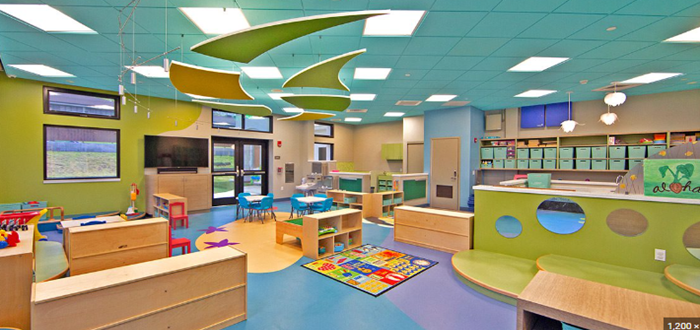What are the Benefits of Sending Your Child to Nursery?
As a parent, there are many decisions you need to make for your child, and one of these is whether and when to send them to the nursery, and what the right time would be for you and your child. If your child isn’t already attending a nursery but is beginning to show signs that they may be ready to spread their wings a little, you may want to consider what a nursery setting has to offer. Of course, feeling a little uneasy about being apart from them is natural, especially if they are very young, but the transition to nursery can be a very positive experience for your little one and have multiple benefits.

Skills necessary to success: If you hand a crayon to a three-year-old and ask them to draw you a house, chances are good that the picture you get is going to look more like a bowl of spaghetti than a house. Even if a child knows what a house looks like, they likely just don’t have the fine motor skills and hand-eye coordination required to complete the picture. Luckily, the hands-on nature of most preschool activities all works to help your child build those fine motor skills and become steadier. In fact, the activities offered in preschool settings are typically designed to specifically aid in fine motor development. Everything from holding a pencil to buttoning their jacket, gluing elbow macaroni to construction paper, and hand-signing along to The Itsy Bitsy Spider will help further develop those skills. Visit this Nursery School and you know more Benefits of Sending Your Child to Nursery.
Child a chance to be independent: Building independence is an important part of growing up, and the sooner that children are able to start practicing those skills, the better equipped they’ll be when they enter kindergarten. Preschool helps children flex their independence muscles in a number of ways. They may be encouraged to make decisions for themselves (in terms of what snack they’d like to eat, or what activity they’d like to take part in). They will be encouraged to make their own friendships (with guidance, of course). And they’ll be encouraged to ask questions and explore. All of these skills will be helpful as your child continues to develop academically and socially—really, on all levels.
The structured setting of kindergarten: Teaching your children about rules and structure is a natural part of being a parent. That’s why we tell them “no” to things that might be dangerous, why they can’t have cookies for dinner, and why we make sure they stick to a schedule. But even the most structured of home settings is vastly different from what a child will experience in kindergarten, where they’ll be expected to raise their hand when they want to speak, follow instructions, and pay attention. Though not as structured as kindergarten by any means, preschool begins to introduce children to the structure that they’ll encounter in the grades above. This will make that future transition much easier for everyone involved.
Preschool exposes children to people different from themselves:
Preschool is a great way to begin teaching children the important lessons of diversity, and it achieves this by introducing your child to other children from different cultural, religious, and economic backgrounds. This is done through both the curriculum—through books and stories about characters from all across the world, for example—as well as through the direct experience of working, learning, and playing with children and teachers from other backgrounds. Frankly put, diversity lays the foundation of equality and fairness, important qualities for children to have, and helps children learn to respect both each other and themselves. Students who attend high-quality preschool programs are taught to celebrate both the similarities and differences that we all have.
Preschool gives your child an academic head start: One of the more obvious benefits of preschool and other early childhood education programs is the fact that they help lay the groundwork that a child needs to be successful in kindergarten and beyond. Preschool programs often aim to familiarize children with everything from their ABCs (letter recognition, basic reading skills) to numbers (basic addition and subtraction) to specials like basic science, history, and even foreign languages. This foundation, reinforced with what they’re already learning with you at home, is critical to everything they’ll learn going forward.
Happy Bunnies Nursery
Comments
Post a Comment